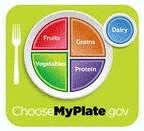Nutrition and Health Sciences, Department of

Department of Nutrition and Health Sciences: Dissertations, Theses, and Student Research
Date of this Version
4-2015
Document Type
Dissertation
Citation
Baier, S. R. (2015). MicroRNAs Are Absorbed In Biologically Meaningful Amounts From Nutritionally Relevant Doses of Cow's Milk and Chicken Eggs And Affect Gene Expression In Peripheral Blood Mononuclear Cells, Cell Cultures, and Mouse Livers. PhD diss., University of Nebraska-Lincoln, Lincoln, NE.
Abstract
Throughout the twenty-first century, evidence has been continually increasing to show the importance of epigenetic regulation in health. While the term “epigenetics” can be applied to many different processes, the focus of this dissertation will be on microRNAs and chromatin structure. Ultimately, both of these forms of epigenetic regulation can be used to fine tune gene expression based on environmental cues. The first three chapters of the dissertation focus on microRNA bioavailability, stability, and function from two commonly consumed food products: cow’s milk and chicken eggs. This important work has been the first of its kind to demonstrate the bioavailability and function of dietary, animal-based microRNAs. In order to test our hypothesis that dietary microRNA are indeed bioavailable, many experimental protocols have been used. Human feeding studies are the prominent tool used, but important discoveries have been made in cell culture and in a mouse feeding study that add to the significance of this work. The final chapter will focus on a well-known histone modifier: sulforaphane. There have been many positive roles attributed to this compound, but the work presented here describes some potentially negative consequences of high sulforaphane intake. Overall, the conclusion of this work is dietary microRNA are bioavailable and can regulate endogenous gene expression. For the scientific field to determine the contribution of dietary microRNAs to overall health, much more work will need to be performed but the evidence provided in this dissertation indicates it is likely dietary microRNAs play a key role in overall epigenetic regulation. Ongoing studies in our laboratory to further this work and answer some of the current questions are also briefly described.
Advisor: Janos Zempleni


Comments
A dissertation Presented to the Faculty of The Graduate College at the University of Nebraska In Partial Fulfillment of Requirements For the Degree of Doctor of Philosophy, Major: Interdepartmental Area of Nutrition, Under the Supervision of Professor Janos Zempleni. Lincoln, Nebraska: April, 2015
Copyright (c) 2015 Scott Baier